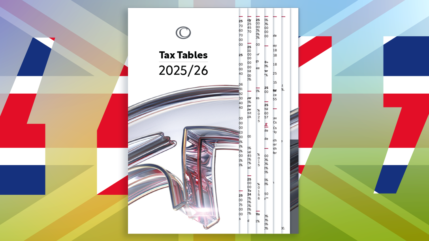In the third quarter of 2020, global markets have regained a lot of lost ground since bottoming in mid-March. This is good news, but anybody forced to pay an Inheritance Tax (IHT) bill during a market crash may find themselves in a quandary. Share values in the deceased person’s estate would have plummeted while the IHT bill, calculated by the value of the estate six months prior, still stands. Could share loss relief for IHT help?
Before delving into what share loss relief is and how it can potentially be useful in an IHT context, it’s important to understand a few key specifics:
From the end of the month of death, IHT is due within the following six months.
The month of death is not considered within the six month timeframe, regardless of the date the individual died. If death occurred September 1st, the personal representative(s) must pay IHT by March 31st the following year.
In light of the pandemic, Her Majesty’s Revenue & Customs (HMRC) has indicated no certain ‘holiday’ on IHT payments, but that it may accept reasonable grounds for any late IHT payments via appeal. Should an appeal be unsuccessful, any amount outstanding beyond the payment due date will be treated under normal circumstances and subject to penalty fees.
The deceased’s net estate (assets – liabilities) are valued as of the date of death.
While IHT is due within six months following the end of the month in which the death occurred, there will be a number of instances where significant ‘overpayments’ of IHT are made, relative to the severely diminished value of assets (as part of an estate). This is especially so around the peak of any crisis affecting markets, where IHT bills are due at the same time.
Share Loss Relief for IHT
Share loss relief for IHT is a tax relief designed to recover the overpayment of tax on an estate including shares, where those shares are sold with a subsequent realised loss.
If you claim share loss relief, the amount of IHT that can be recouped will be equal to 40% x (Share Value at date of death minus Share Value at the IHT due date).
Loss relief of this kind can only be claimed on ‘qualifying investments’. These include holdings of listed shares and securities on a recognised stock exchange (at the date of death), UK government gilts and holdings in unit trusts. Holdings in AIM listed companies (companies listed on the Alternative Investment Market) do not meet HMRC’s requirements for qualifying investments.
Eligibility
To be able to claim, shares must be sold within 12 months from the date of death. Every sale of ‘qualifying investments’ must then be included on a form called Inheritance Tax: claim for relief – loss on sale of shares, more concisely referred to as form IHT35. This includes shares which have realised a gain.
The completed form IHT35 must be submitted within four years from the end of the 12 month period in which the sales took place. Investments which have realised gains will negate the size of the net loss reclaimable.
Considerations
It is the net loss on which the relief is calculated (share gains tallied against share losses)
All investments sold within the 12 month period must be included within form IHT35 and any of those realising gains will have the effect of reducing the IHT loss relief available. In order to maximise the amount of relief, it may be more beneficial to delay the sale of investments showing a gain until after the 12 month period ends.
Should the shares be sold at all?
Good question. The answer will depend on the views of the beneficiaries and their own financial planning objectives.
If the beneficiary has a high risk investment appetite, they may prefer to hold out and wait for the value of the shares to recover, particularly if they have a long investment time horizon.
To the contrary, if a beneficiary is a child or grandchild, they might prefer an immediate sale of shares to realise cash and enable them to purchase, for example, a first property.
It may be that the beneficiary has no choice and a forced sale is necessary to help meet the IHT bill.
There’s a two month period restricting the sale and immediate repurchase of the same investments.
The legal personal representatives (LPAs) can’t have their cake and eat it: you cannot simply sell shares, realise a loss, claim IHT share loss relief and then suddenly repurchase the same shares.
One loss is enough
If ever IHT becomes a concern for you or anybody you know, it’s important not to let it be a burden on what’s often a challenging situation. Don’t be afraid to speak to somebody who can understand the circumstances sensitively, and then objectively apply knowledge and experience to help put minds at rest.













